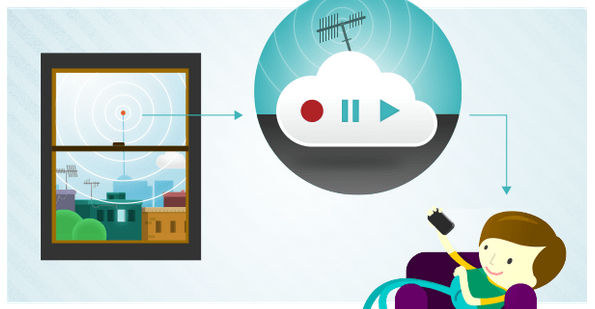Aereo CEO: Don’t Blame Us Because We Built A Better Antenna
 Next Tuesday, lawyers for the nation’s broadcast networks and streaming video startup Aereo will square off in front of the U.S. Supreme Court in a case where a victory by either side carries with it potentially huge implications for everything from over-the-air TV to all cloud-based technology. Since he won’t be the one talking to the Supremes, AEREO CEO Chet Kanojia has been making the interview rounds to make his case to the public.
Next Tuesday, lawyers for the nation’s broadcast networks and streaming video startup Aereo will square off in front of the U.S. Supreme Court in a case where a victory by either side carries with it potentially huge implications for everything from over-the-air TV to all cloud-based technology. Since he won’t be the one talking to the Supremes, AEREO CEO Chet Kanojia has been making the interview rounds to make his case to the public.
For those still unfamiliar with Aereo, it’s a service that takes freely available over-the-air broadcast signals and sends them to paying subscribers over the Internet. The broadcasters say this is a violation of copyright, alleging that Aereo is retransmitting their content without permission and without paying the hefty retransmission fees that cable and satellite companies pay.
Aereo’s defense lies in the nature of its system, which uses arrays of very tiny antennae to pick up these broadcast feeds. Each antenna within an array is dedicated to one single end-user. So Aereo contends that this is nothing more than a new version of a rooftop antenna one might install to improve TV reception; it just happens to be connected over the Internet.
Executives at News Corp (owner of the FOX channels), CBS and others have outright accused Aereo of stealing. In an interview earlier this week with Katie Couric on Yahoo News, Kanojia says he understands why the broadcasters are aggravated, but says Aereo shouldn’t be blamed for the networks’ lack of foresight.
“I think [News Corp COO Chase Carey is] absolutely right they have a right to be fairly compensated,” says Kanojia. “If somebody’s come out with a smarter antenna, a clever, different antenna, and you don’t like that evolution is happening, that suddenly more people might use antennas, well I’m sorry about that…I just don’t find that rhetoric to have any credibility.”
Speaking to the AP, Kanojia spoke in more detail about this evolution and the impact that the Web is having on all forms of media.
“[T]he Internet is happening to everybody, whether you like it or not,” he explains. “It happened to books, news people, it happened to music people, it happened to Blockbuster. There is nothing in our Constitution that says there is a sacred set of companies that will never be affected by new technology.”
As for some broadcasters’ ultimatum that they will pull their signals from the air if Aereo succeeds and go cable-only, the CEO is skeptical.
“They can do whatever they want. I think the question becomes on an overall reach basis you’re giving up 60 million eyeballs,” says Kanojia. “That’s how many people use antenna in some way, shape or form, which kind of correlates to about 18 percent of the household basis.”
He expands further on this in an interview with GigaOm, saying, “I don’t think they can [pull their OTA signals and go cable-only]. Just to put it in context, ESPN has Monday night football, and the performance is a fraction of what the broadcasters get.”
If Aereo prevails before the Supremes, Kanojia says his company will expand to all 50 states, but is realistic about any immediate impact an Aereo victory might have on the industry.
“I don’t think anything is going to change anywhere because of Aereo,” he explains to the AP. “What is happening is the entire market base is changing with access to alternatives, whether it’s Netflix or iTunes or things like that. Aereo is simply providing a piece of the puzzle. After we win, it’s not that a sea change is going to happen overnight. It is just going to be that we will be allowed to continue to fit that missing piece in a consumer’s life as they’re evolving. These things take decades to play out.”
We think he might be underestimating the impact a ruling in favor of Aereo might have. It may not lead to a rush in dozens of millions of consumers cutting their cable cords and switching to Aereo, but it will almost certainly result in companies like DirecTV pushing forward with development of Aereo-like technology that would allow them to provide customers with local network channels without having to pay the billions in retrans fees that are a huge drain on cable and satellite companies’ coffers every year.
Regardless, while an Aereo victory could take a while to have a dramatic impact on the market, a ruling against Aereo would force the company to shut down or completely change its business model.
“We don’t have a Plan B” admits Kanojia, “To me, if we optimize for loss or a potential loss, we give up optimizing for a win. If you believe your position, the only thing you should do is play to win. We’ve never been dishonest with our investors. Everybody knows what the risks are.”
Want more consumer news? Visit our parent organization, Consumer Reports, for the latest on scams, recalls, and other consumer issues.

